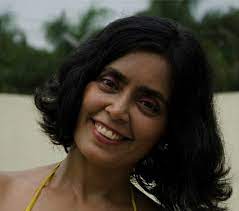BY GORKY BAKSHI
She is a woman with rare combinations. She can be tough and yet be feminine. Dr. Seema Rao has achieved plethora of accomplishments in her life – from being a gold medallist in rock climbing to Mrs World pageant finalist. She is also a seven degree black belt holder to commando trainer. Seema Rao has been giving commando training to various armed forces in India for more than 20 years.
This is the service for which she doesn’t charge the Army. She gives training in combat shooting, fire fighting, scuba diving, critical combat and much more to the army personnel. Very few people mastered Jeet-Kune-Do, a martial art form, founded by Bruce Lee, and it is great to note that Seema Rao is one of them. She teaches jeet-kune do to her students and is the only female commando trainer in India. Her life is truly an inspiration for many.
Early life of Dr. Seema Rao
She is the daughter of Professor Ramakant Sinari, who fought for freedom of Goa from Portuguese. She grew up in a family where patriotism ran in her veins. At 48, she looks at her career as an inspiring one. Recalling her past she said: “Like any other child, I too wanted to be a doctor or an engineer in my school days. I was quite weak and bullied in my school.” But her fate took a turn when she got married to Deepak Rao.
“He was into martial arts and introduced me to this field. Initially I took it as a hobby, but slowly it led me to the advance level of adventures.” She also took up courses like mountaineering, rock climbing, tae-kwon-do, knife-fighting and fire-fighting. Today she is master of all these activities.
Hardships and sacrifices
While playing a role of combat trainer she had to sacrifice a lot in her life. With constant interest in combat training she has completed many courses and become only woman instructor in the world who successfully completed Bruce Lee’s art of jeet-kune-do.
“To be a successful person one has to go through a lot of challenges. I missed my father’s funeral because I was busy in an assignment in east India. We have also seen financial hardships, I had to once sell my necklace to survive. I am so thankful to my husband who stood with me every single second of my life,” said Seema.
She adds: “Once I suffered a severe head injury during an unarmed combat. It was followed by memory loss for five weeks. I could not recognise anyone, except my husband but finally I recovered. “Also, we took a joint decision not to have our biological child because of my combat training. Combat training demands a lot of danger ridden activities that could hurt child in the womb. But, I am so lucky that I could adopt a girl child who lost her parents.”
Success Story
She is a perfect trainer one can understand with this example. She can shoot five rounds into the bulls eye of a very small target held at her husband’s head at 75 yards. She can also duck a live bullet fired from a 9mm pistol aimed at her head. She can shoot five targets within two seconds. Seema and her husband have developed a specific course called Rao’s Method of Reflex Shooting.
They aware armed and unarmed men for commando combat. They have established an Unarmed & Commando Combat Army (UCCA). In this organisation they research and develop modern combat styles and produce training to the forces. Her first Indian books on world terrorism is A Comprehensive Analysis of World Terrorism and Commando Manual of Unarmed Combat’ are available at libraries of FBI, INTERPOL, UN, and SWAT Police the world over.
She has been awarded with many national and international awards in past couple of years. She was awarded with World Peace Award by World Peace Congress, Malaysia for contribution to the country in 2008. US President’s Volunteer Service Award, three Army Chief Citations and Home Minister of India Letter of Commendation in 2009 are few other feathers in her cap. //
